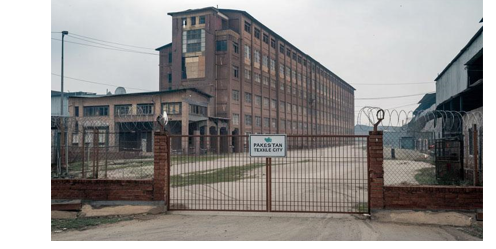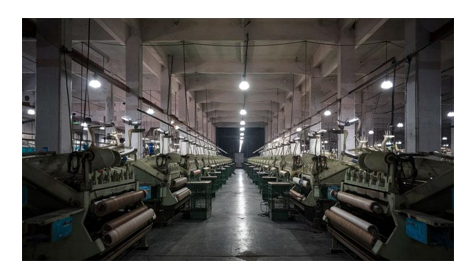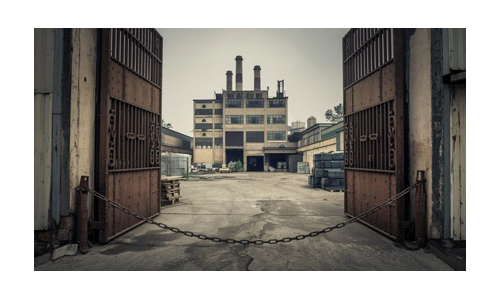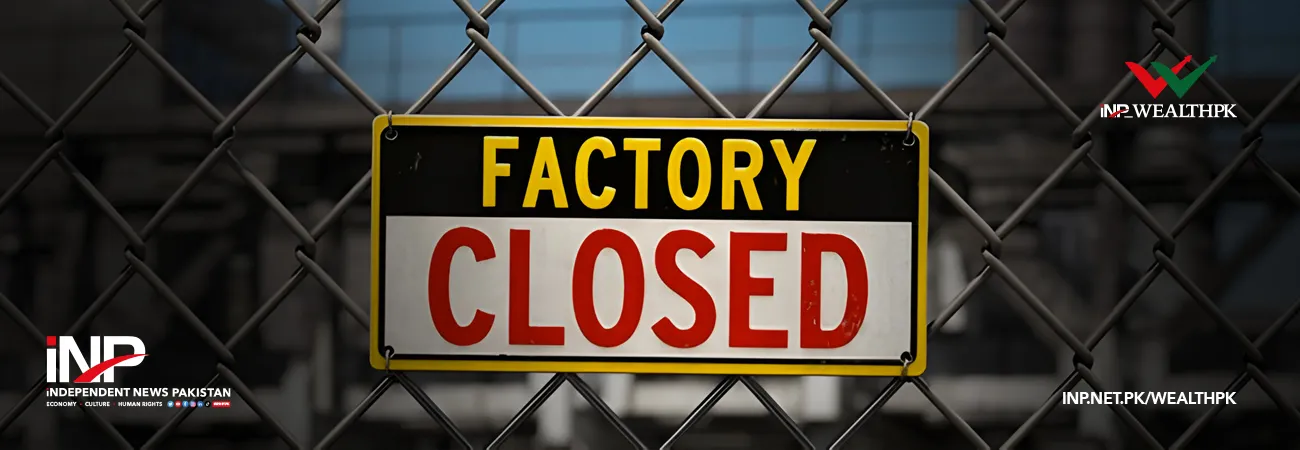INP-WealthPk
Muhammad Saleem

Industrial closures in Faisalabad, driven by inflated electricity tariffs and high interest rates, are posing a serious threat to allied businesses and the workforce connected to this sector. In an interview with WealthPK, Amjad Ali, a member of the Pakistan Hosiery Manufacturers and Exporters Association (PHMA), pointed to the unpredictable electricity prices as a major factor behind the closures, leaving countless workers unemployed. He explained that rising electricity costs have crippled all segments of society, while high interest rates are exacerbating the problem. These factors, he noted, are severely impacting the industrial sector and businesses, forcing many factory owners to shut down their operations due to unsustainable expenses. Without naming specifics, Amjad mentioned the recent closure of a large industrial unit in Faisalabad, which caught many by surprise.
The owners, despite being multimillionaires and experienced businessmen, ultimately decided to cease operations due to the overwhelming financial pressures. Amjad also highlighted that foreign buyers are hesitant to place orders with Pakistani exporters due to high prices and the uncertainty in the market. They fear that political instability in Pakistan could lead to delays in shipments, damaging their businesses and reputations. High tariffs are stunting the growth of the textile sector, creating opportunities for Pakistan’s competitors to flourish in the international market, he said. “If industrialists don’t see a reduction in energy costs, it will be impossible for them to operate profitably,” the PHMA member warned.

Naeem Ahmed, a textile exporter, told WealthPK that the situation was rapidly worsening, with many operational mills forced to cut production to avoid financial losses. “How can millers contribute to strengthening the national economy and ensuring jobs when they lack the essential resources to run their businesses?” he questioned. He added that more closures were likely in the near future unless the government reduced electricity and gas prices and brought interest rates down to single digits. Naeem emphasized that millers were trying to convince those in power that relying on IMF loans would not resolve the country's problems. "The only solution to our long-standing issues is to boost business activity and drive industrialization," he believed.

The current global market conditions present a great opportunity for Pakistani exporters to regain their clients, as many brands are shifting away from a particular country, for reasons known best to them. It’s a prime time for us to capitalize on this shift. The government must support exporters by lowering electricity and gas prices. If we don’t act effectively, we will miss the opportunity. Muhammad Idrees, a yarn market trader, said the market has been quiet lately, with weaving unit owners refraining from purchasing yarn due to the ongoing uncertainty. He noted that the current situation has rattled millers, causing them to halt accepting new orders, and they are struggling to fulfill their existing commitments. He explained that the yarn market is traditionally the hub of industrial activity, as spinning mill owners sell their yarn there. A bustling market indicates a thriving textile sector, whereas a deserted market signals trouble. Idrees warned that the current situation is unsustainable for the industry, and if it persists, every segment of society will face a ripple effect.
Credit: INP-WealthPk













